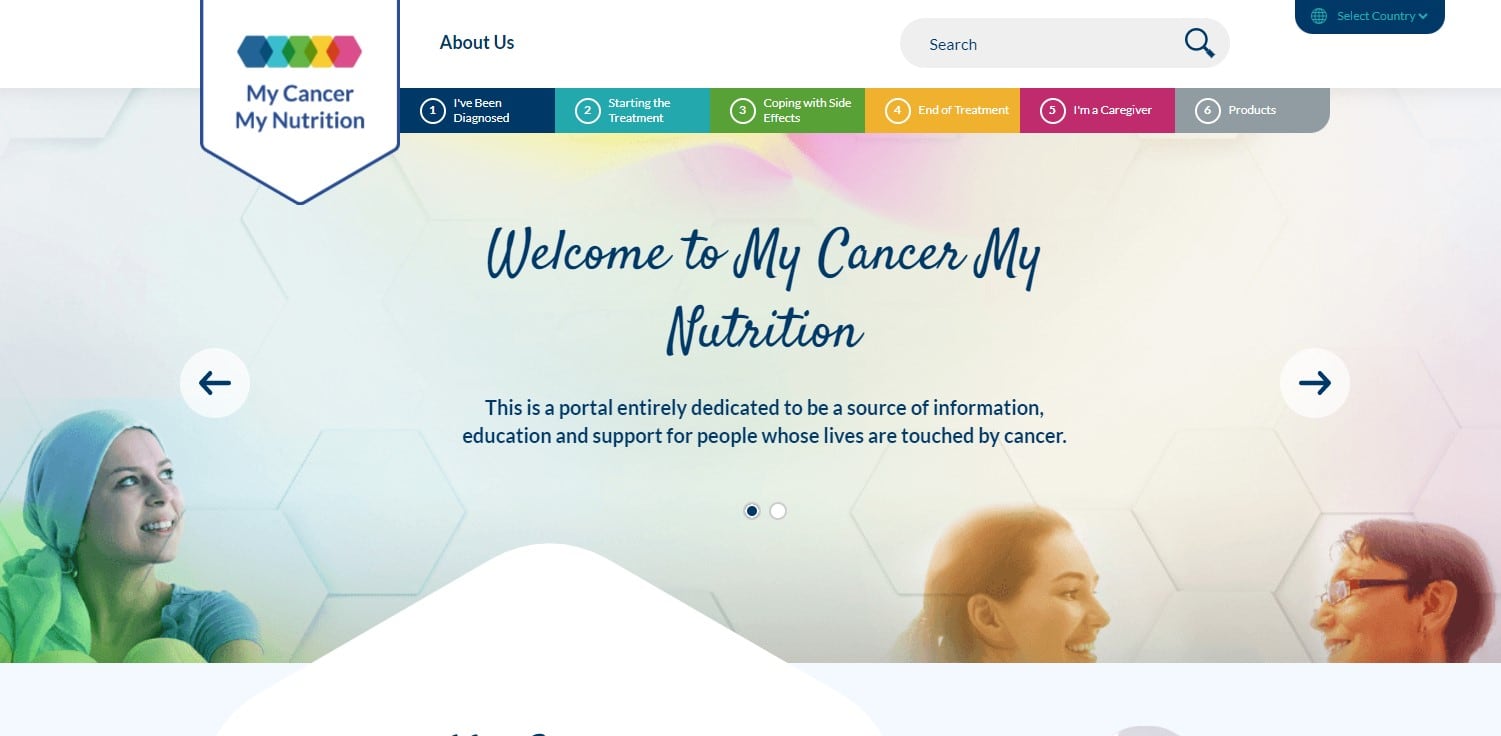Besides information on food and nutrition the platform, ‘MyCancerMyNutrition.com’ offers support from diagnosis, beginning and ending treatment as well as coping with side effects and a new routine.
The emphasis is on wellbeing as patients are also provided with tips for improving nutritional levels during periods of appetite loss, nausea, mouth soreness, difficulty chewing or swallowing, changes in taste and more.
Increased malnutrition risk
With certain cancer types placing patients at an increased risk of malnutrition, the platform emphasises food and nutrition during each stage, where initial diagnosis advice turns to the advantages of specialised nutritional therapy to meet nutritional goals.
These include increasing fruit and vegetables intake every day to increase minerals, fibre and vitamin levels and help to improve digestion.
Food and nutrition considerations during the start of treatment includes the use of taking vitamin and mineral supplements to boost the immune system and accelerate the healing process after surgeries.
Nutrients of benefit here are vitamin A, B6 B12, C, D, folic Acid, Zinc, and Selenium, where the platform also recommends foods rich in these vitamins and minerals.
The platform also devotes a section to coping with the side effects of cancer treatment with recommendations in place to consume high protein and calorie drinks like milkshakes, oral nutrition supplements and smoothies made with non-acidic fruit to help make up missed nutrition from solid foods.
Milkshakes, oral nutrition supplements and smoothies are also advised as a viable protein source for those who have trouble swallowing due to location of cancer and radiation therapy that targets the throat, oesophagus and lungs.
Nutritional therapy
The online hub also provides information on nutritional recovery at the end of treatment, where the aim is to prevent and treat malnutrition, boost the immune system and speed up recovery.
Here doctors and/or nutritionists devise an appropriate nutritional therapy such as an oral-based approach that looks to provide adequate amounts of calories, proteins, water, vitamins and minerals through eating and taking supplements.
This is usually the first option because it’s more natural, and both handmade and industrialised oral supplements are accepted.
Enteral nutritional therapy is the next option, which patients would follow if they cannot ingest solid food or reach more than 60% of their daily nutritional needs for more than three consecutive days.
Patients have a probe inserted in their stomach or small intestine to completely or partially provide them nutrients. Enteral nutrition supplies everything: vitamins, minerals, proteins, fats, carbohydrates and water.
Parenteral nutritional therapy is advised in case there’s any issue in the gastrointestinal tract, such as wounds, obstruction and insufficiency, or when the patient is malnourished 24 to 72 hours after starting enteral therapy. Nutrients are provided intravenously in this method.
MyCancerMyNutrition also provides support to caregivers that includes advice on how to safely prepare food for immune-compromised patients and how to preserve nutrient content when preparing vegetables.




